If you haven't serviced or checked your car's engine for a long time, sludge and caked-on grease can build up. Over time, this sludge can clog up the oil system and cause immense damage. But not to worry, as we have done proper research to help you get your engine clean again.
The easiest way to remove caked-on grease and sludge from your engine is to use a degreaser. However, if the sludge build-up has settled in for a long-time, it would be best to let a professional mechanic clean it up as it might involve taking the engine apart and cleaning sensitive areas.
Engine sludge can be a headache to car owners, and a damaged engine can cause thousands to repair. Keep reading as we will elaborate more on the best ways to prevent and fix your clogged-up engine.
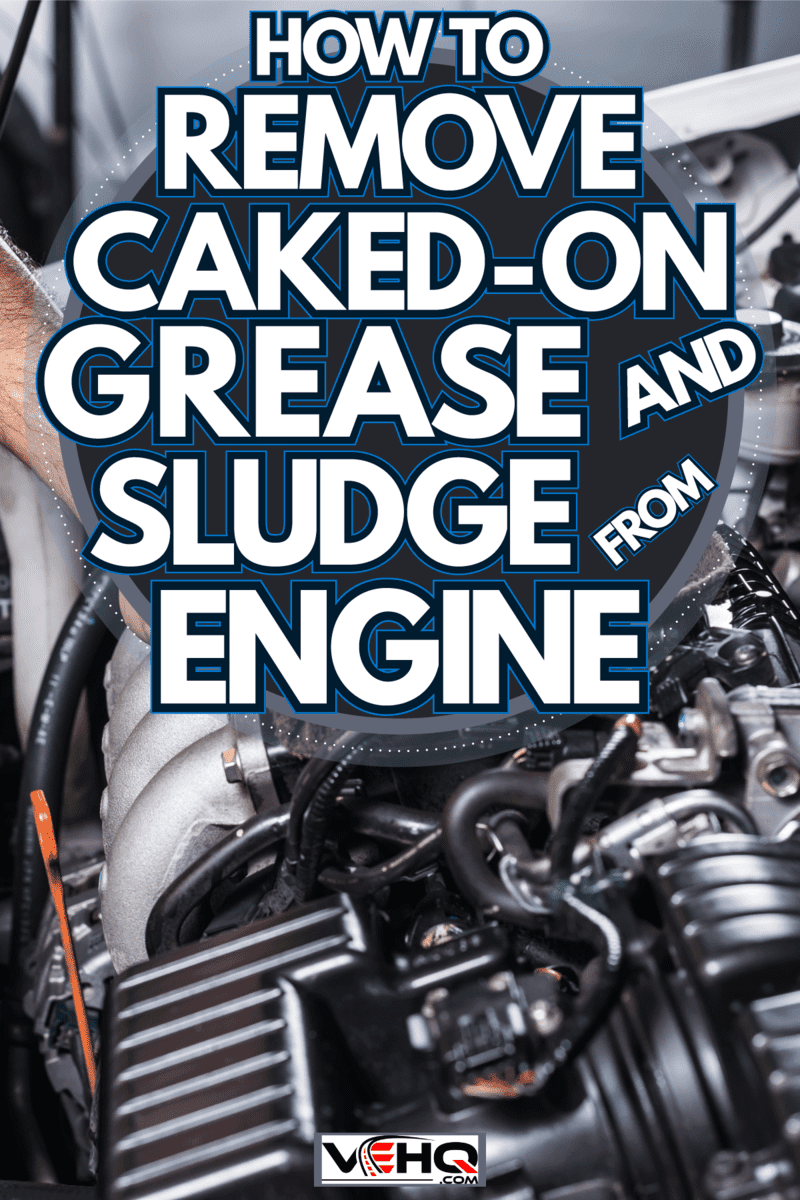
What Is Engine Oil Sludge and Caked on Grease?
Engine oil is an important part of a car. It lubricates the engine and helps it run smoothly. Engine oil is made up of a mixture of different components, including gasoline, metals, and other chemicals. It is a key component of an engine, and if it gets contaminated, the engine can become permanently damaged.
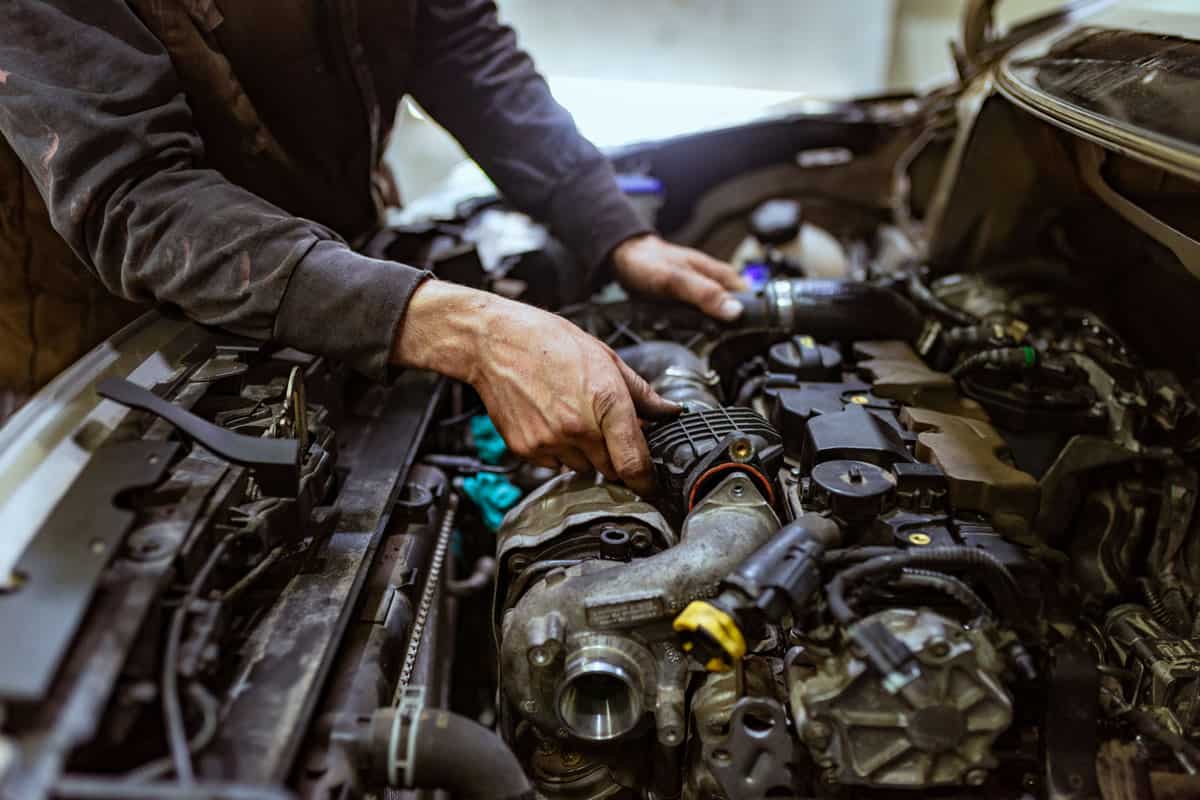
Engine oil sludge is a thick, dark, gooey substance that often percolates in the engine when the oil becomes contaminated. It can be caused by high heat or moisture in the oil.
Engine oil sludge can clog up the engine’s workings, causing it to work slower and wear out more quickly than it should. It can also cause engine fires if not removed immediately.
Engine oil sludge can be caused by:
- Moisture in the engine that has seeped into the lubricant through cracks or leaks in the engine block or cylinder head
- High heat in the engine has caused some of the components to vaporize and become suspended in the lubricant
- Improper storage and handling of used motor oils
How to Identify Engine Sludge
There are many indicators that sludge has built up in your engine. Here are ways to identify it:
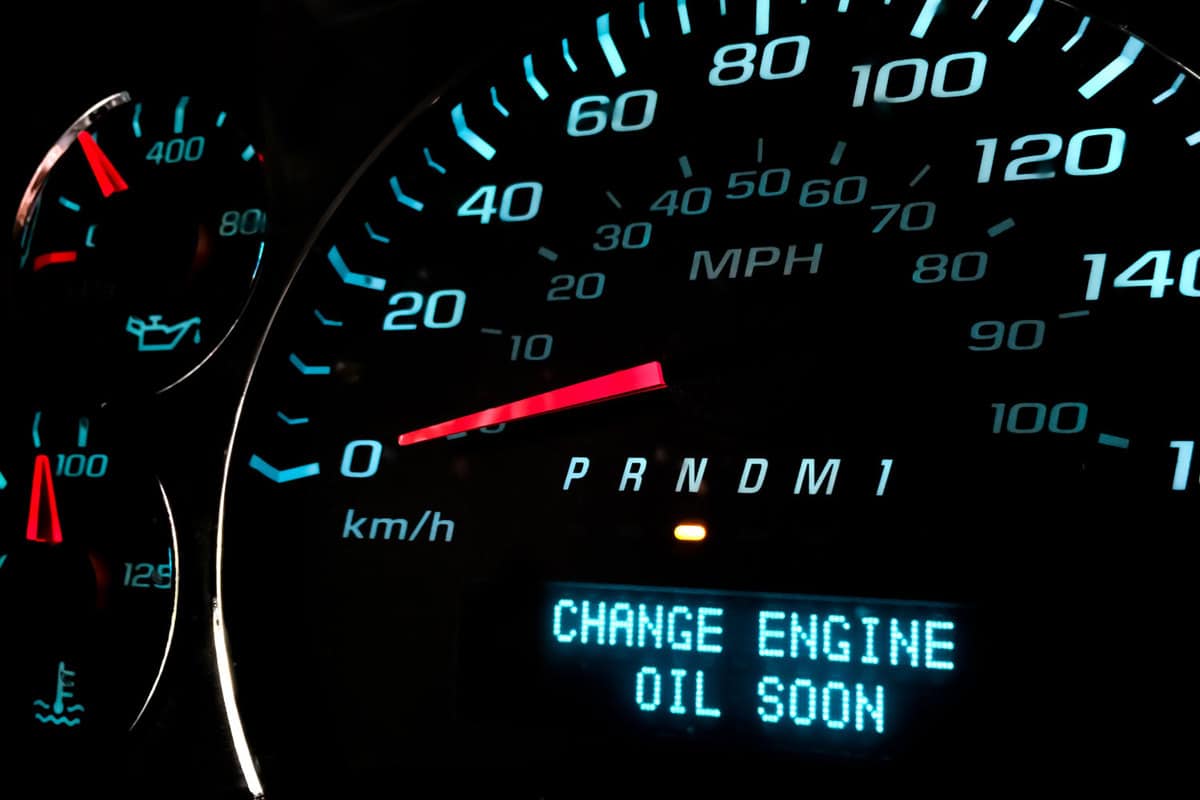
1. Check Your Dashboard
Usually, when sludge starts building up in your engine, the engine oil light will turn on to indicate when it has reached a certain level of contamination. If you have been driving with the engine light on for more than 10 minutes, it is highly recommended to stop immediately and have your car checked out.
Depending on your car's model, it is essential to change the oil every 3,000 to 7,500 miles and clean out the sludge if you notice any signs.
2. Inspect Your Engine
When inspecting your engine for sludge buildup, look for thick and dark oil that has been deposited over time in the engine. The sludge thickness in the engine's crankcase will vary depending on how much-contaminated oil has been used over time.
3. Check Your Oil Pan
The oil pan is located at the bottom of an engine's bay, just below where you would find the engine block. The oil pan collects and stores liquid lubricant used by car engines. The primary purpose of this device is to ensure that there are enough lubricants in your vehicle at all times.
It also helps to cool down the engine during operation and provides a place for air to enter the crankcase during the compression stroke of each cycle. When there is a build-up of engine sludge in the oil pan, your motor usually has engine sludge.
How to Prevent Engine Sludge and Caked-on Grease
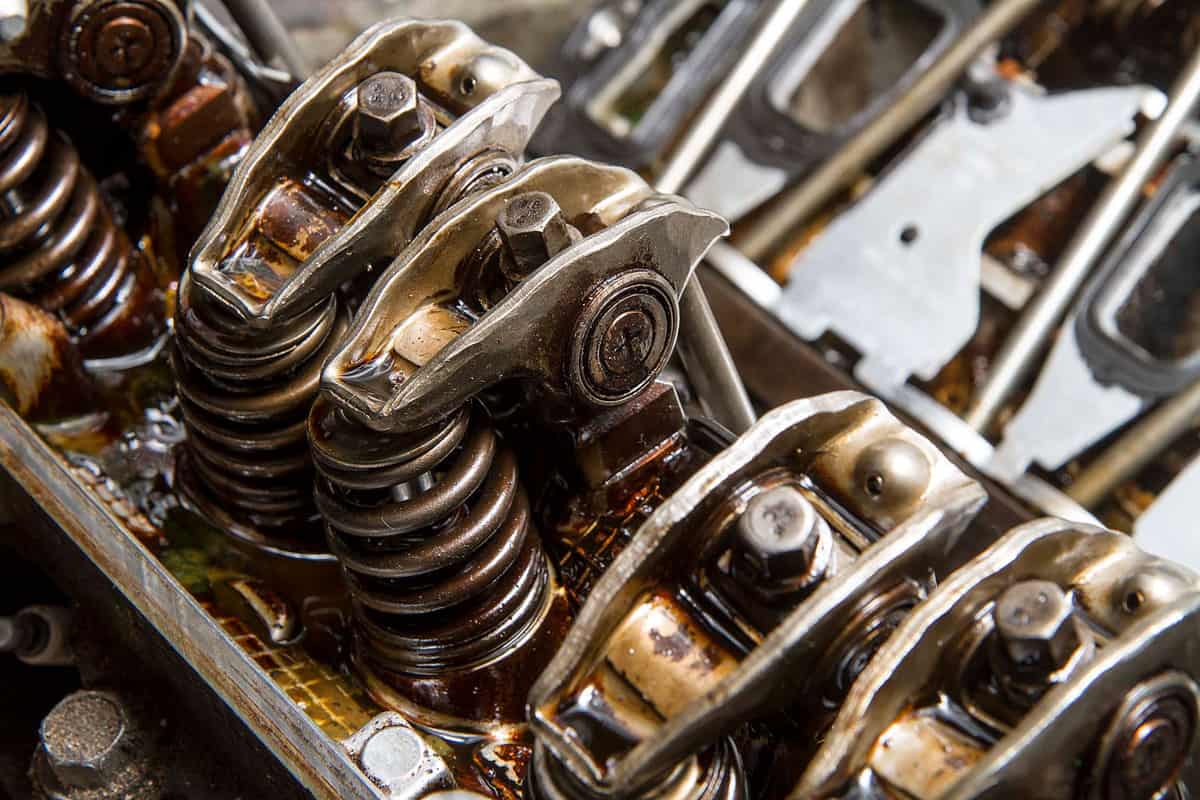
The build-up of carbon and other deposits on the engine can cause it to malfunction or even stop working altogether. Here are some tips to prevent your car engine from accumulating sludge:
1. Change Oil Regularly
Engine oil is a viscous liquid composed mostly of petroleum distillates and polyalphaolefins (PAOs). The viscosity of engine oil depends on its chemical composition, so there are different grades for various purposes. Engine oil is an integral part of the car engine.
It lubricates and cools the moving parts of the engine. To make sure that it stays in good condition, it needs to be changed regularly. You can change your oil yourself or by the mechanics. Whichever method you choose, make sure you carry out your oil change according to the recommended mileage increment.
2. Use Appropriate Oil Filters
An engine oil filter is a device designed to filter the engine's oil. It helps to keep the engine clean and safe. The engine oil filter is usually located on a short hose that connects to the engine's oil-filled crankcase.
Engine oil filters are designed to remove or trap particles, such as metal shavings, dirt, and other contaminants that can clog up the engine's lubricating system. There are different filters for all engines, so make sure you use the manufacturer's recommended size.
The more you change your oil filter, the less likely it is for contaminants to make their way to your engine and cause damage.
3. Prevent Stop and Go Driving
Short-distance driving is a strenuous activity for a car engine. It can cause engine oil to break down, which leads to poor performance and expensive repairs. It can also contribute to grease caking and sludge build-up.
An excellent way to prevent short-distance driving from damaging your car's engine is by using quality motor oil that meets all your vehicle's specifications. You can also opt for another transportation means for short-distance trips.
How Do You Clean Heavy Sludge Out of an Engine
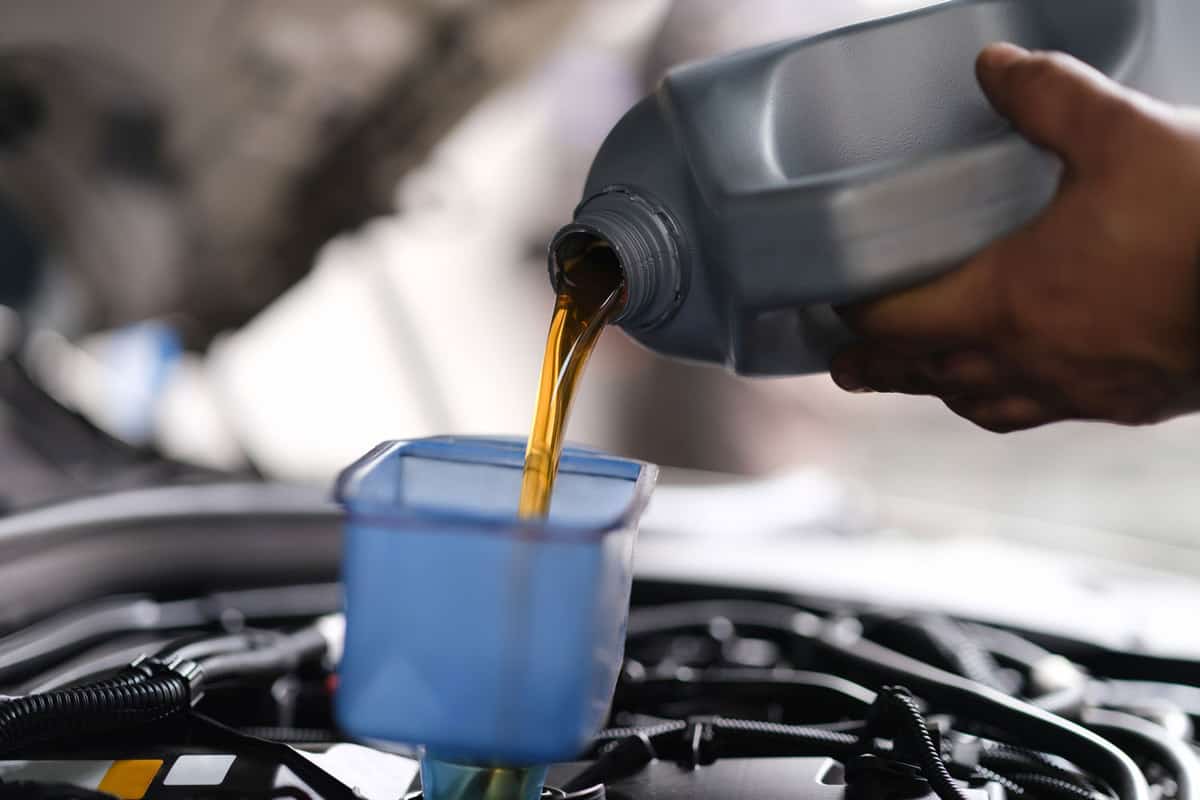
If your engine is plagued by heavy sludge or caked-on grease, here are your options for cleaning it.
Use Engine Flush
Oil sludge results from the build-up of oil and other substances that are left behind after an engine has been operated for a long time. The more it builds up in the engine, the harder it becomes to remove.
Using chemical engine sludge remover is your fastest means to dissolve oil sludge easily. It is not recommended by some mechanics, but it does get the job done. The oil sludge removal dissolves the oil sludge quickly, leaving your engine clean again so you can use it without any problems.
Consult a Mechanic
There are a lot of different ways to remove engine sludge. Some people might use a chemical cleaner, but the best option is to have your engine professionally cleaned by a mechanic.
The price of having your car cleaned by a mechanic is usually higher than doing it yourself, but the quality of work will be worth it. Car mechanics are trained professionals who know how to clean engines and adequately get rid of oil sludge, especially if it affects sensitive engine areas that can be damaged easily.
Will Engine Flush Damage The Engine?
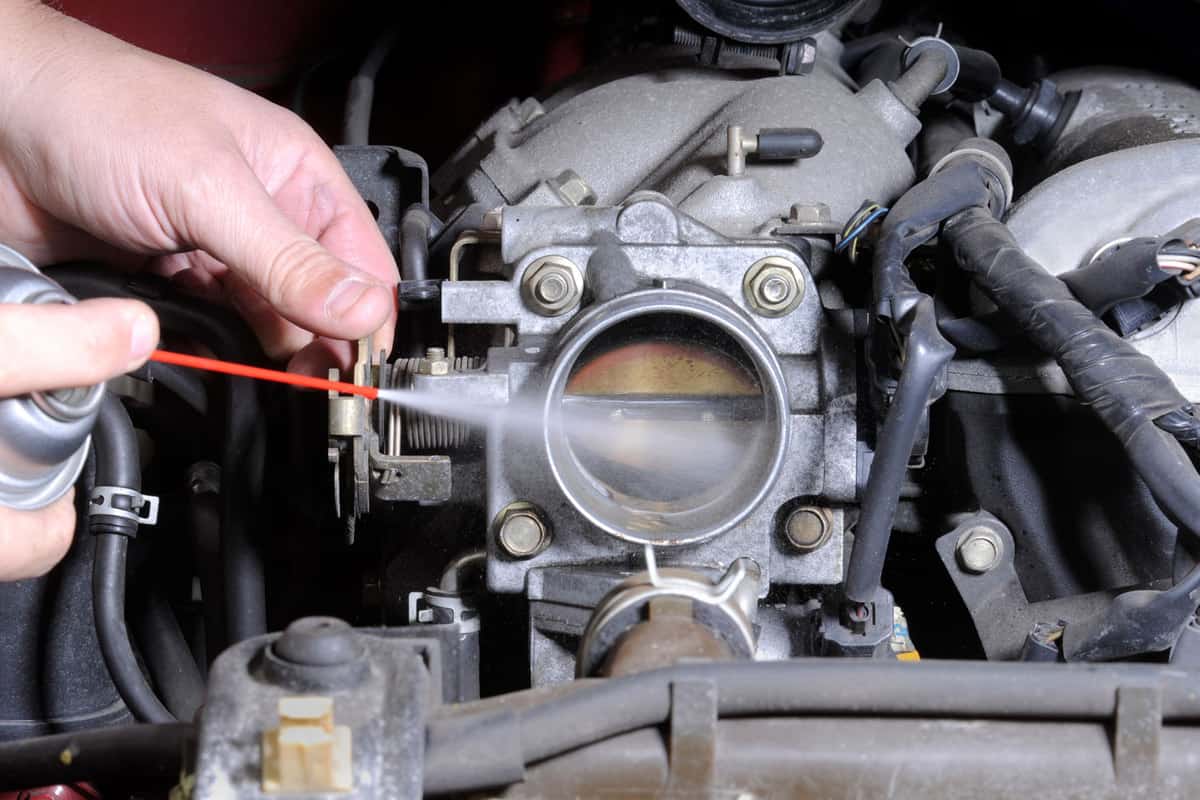
Although some automobile mechanics frown upon using engine flush, they are still often used to clean sludge from engines. However, one of the major concerns is that the additives used in engine flush can cause engine seal damage, which can affect your engine.
Engine oil additives are substances that can be added to the engine oil to enhance its lubrication, clean engine sludge, or change the viscosity. They are also called engine flush.
Engine oil additives come in a wide range of types and consist of different chemicals combined by engine oil manufacturers. They are used in both automotive and industrial applications. The most common application for engine oil additives is diesel engines, which helps prevent sludge formation.
How Do You Make an Engine Degreaser?
The main ingredients for making a homemade engine degreaser are baking soda, water, and essential oil. To make it, combine them in a bottle and mix well. Add some essential oil of your choice as an extra degreaser.
You can also spray a little bit of vinegar to add fizz to the mixture. The process of cleaning the engine with this mixture is simple. The baking soda breaks down the sludge in the engine while the water loosens it up, and the essential oil acts as a natural lubricant.
Can You Use Tire Foam to Clean Engine?
Tire foam is an excellent cleaning agent for car engines because it easily dissolves dirt and grime. It also leaves behind a protective coating on the engine's metal parts, which prevents them from rusting in the future. After degreasing your engine, you can spray tire foam before drying.
In Conclusion
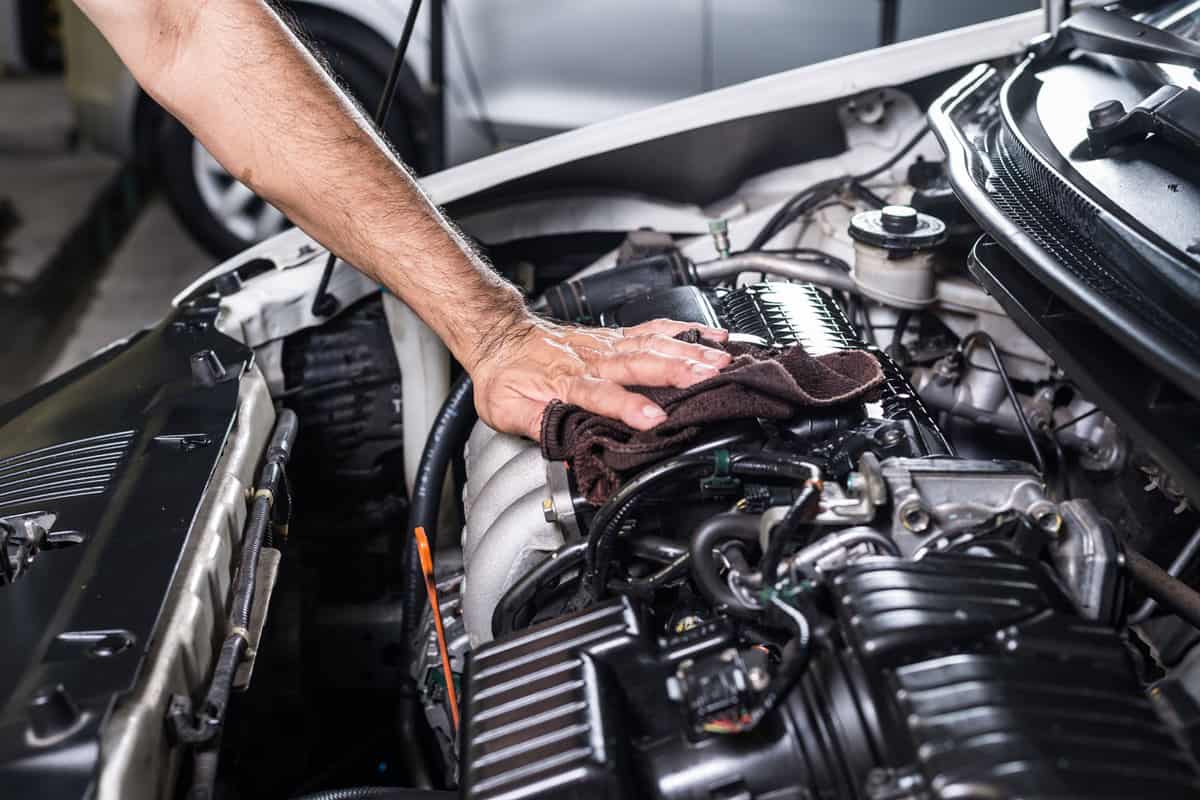
Engine sludge is a common problem that affects your car engine. It can reduce the efficiency of your car and cause a lot of damage which is expensive to fix. Changing your engine oil regularly is an easy way to maintain it and an effective way to avoid sludge buildup. For more articles like this, read these similar posts:
